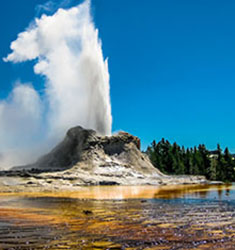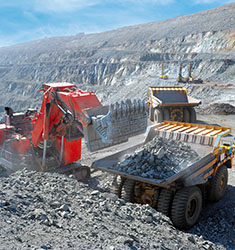Program Description
Geological engineers use their backgrounds in engineering and earth science to provide solutions to engineering problems within the context of the natural world. For example, a geological engineer might study fluid flow and contaminant transport in groundwater, geo-mechanics (the behavior of earth materials), geo-engineering (designing with earth materials), and the discovery, development, and use of mineral and energy resources. The University of Utah’s Geological Engineering program teaches students to apply knowledge of mathematics, science, and engineering to design and conduct experiments, and analyze and interpret data. With accreditation by the Engineering Accreditation Commission of ABET, the Geological Engineering program ensures that students receive the broad education necessary to understand the impact of engineering solutions in a global and societal context. The curriculum includes courses in geological engineering concepts—structural geology, field geology, and groundwater, as well as classes in allied engineering and sciences fields, such as soil mechanics and rock mechanics. This coursework prepares students for the Fundamentals of Engineering Exam and the path toward professional engineering licensure.
The Student Experience
If you are looking to get involved, consider serving on a department committee or completing an undergraduate research project with a faculty member (GEO3900) or internship with an off-campus organization (GEO5900) for credit toward your degree; there are many opportunities for students to earn credit and receive funding for undergraduate research. Outside of the classroom, students can join the Association of Environmental and Engineering Geologists (AEG), the American Rock Mechanics Association (ARMA), or American Association of Petroleum Geologists (AAPG), allowing you to network and engage with likeminded peers and professionals. The department also has the non-professional clubs GeoClub and Inclusive Earth.
Career Opportunities
Geological engineering opens the door to several fields and career paths in both the public and private sectors. Students can join a geotechnical, geological or environmental consulting firm, find employment in the mining or energy industries, or work for any one of a number of local, state, or federal government agencies (such as the EPA, USGS, NASA, DOE, or Department of the Interior). The undergraduate degree also provides a strong foundation for post-graduate education in the geosciences and geological engineering.
More Info
- Department of Geology & Geophysics
- College of Mines & Earth Sciences
- Department Advising
- U Career Success

 Geological Engineering
Geological Engineering


